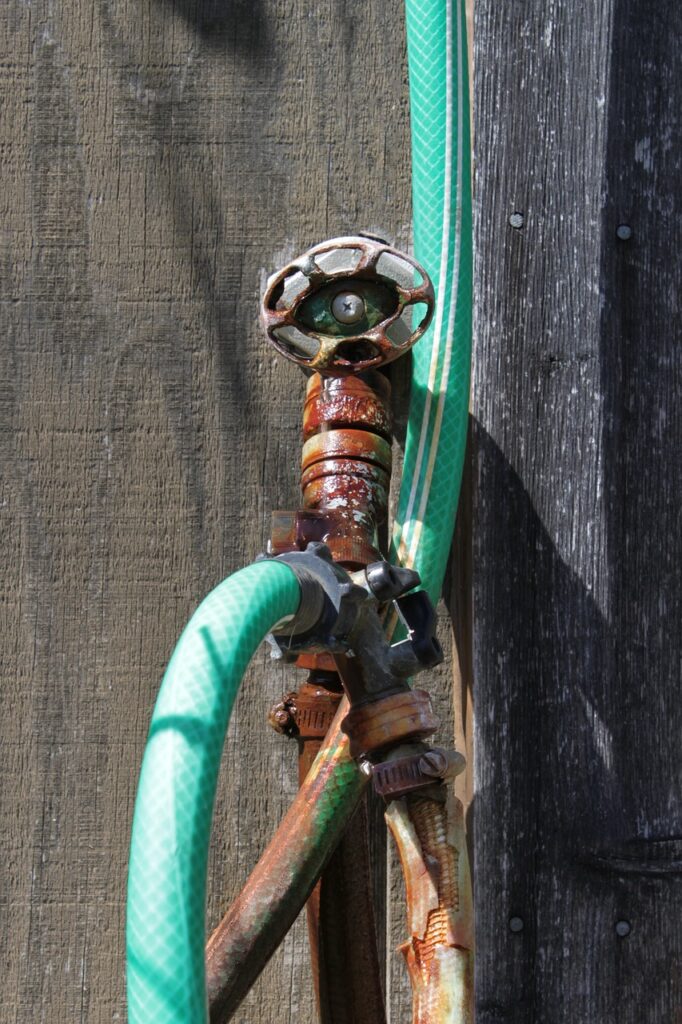Corrosion and Rust Faucet Issues in Arizona
by siteadmin

Arizona’s arid climate and unique geological composition make it a stunning place to live, but it also presents challenges, particularly when it comes to maintaining plumbing fixtures like faucets. One of the most common problems residents face is corrosion and rust buildup in their faucets. In this article, we’ll delve into the causes of this issue and explore some strategies for combating it.
Understanding Corrosion
Corrosion is a natural process that occurs when metals react with their environment. In Arizona, the high mineral content in the water, coupled with the intense heat and dryness, accelerates this process. When water comes into contact with metal faucets, it can lead to the formation of rust, which not only looks unsightly but can also compromise the integrity of the fixture over time.
Factors Contributing to Faucet Corrosion
- Hard Water: Arizona is notorious for its hard water, which contains elevated levels of minerals like calcium and magnesium. These minerals can gradually build up on faucet surfaces, leading to corrosion and reducing water flow.
- High Temperatures: The scorching temperatures in Arizona can exacerbate corrosion by speeding up chemical reactions between the metal and water.
- Lack of Moisture: The dry climate in Arizona means that there is less moisture in the air to act as a barrier against corrosion, leaving metal surfaces more vulnerable to damage.
Consequences of Corroded Faucets
Corroded faucets not only detract from the aesthetic appeal of a home but can also cause functional problems. Over time, rust buildup can lead to leaks, reduced water pressure, and even contamination of the water supply with harmful metals. Additionally, corroded faucets may require costly repairs or replacements, adding to the homeowner’s expenses.
Preventive Measures
- Regular Maintenance: Inspecting faucets for signs of corrosion and addressing any issues promptly can help prevent extensive damage. Regular cleaning with mild detergents and soft cloths can also help remove mineral deposits before they have a chance to cause corrosion.
- Water Softeners: Installing a water softening system can help mitigate the effects of hard water by reducing the concentration of minerals that contribute to corrosion.
- Protective Coatings: Applying a protective coating or sealant to faucet surfaces can create a barrier against moisture and mineral buildup, extending the lifespan of the fixture.
- Temperature Control: Avoiding exposure to extreme temperatures, such as by insulating pipes and faucets, can help minimize the risk of corrosion.
Corrosion and rust are persistent challenges for homeowners in Arizona, where factors like hard water and high temperatures accelerate the deterioration of metal faucets. By understanding the causes of corrosion and implementing preventive measures, residents can prolong the life of their plumbing fixtures and maintain a clean, functional water supply in their homes.
Arizona’s arid climate and unique geological composition make it a stunning place to live, but it also presents challenges, particularly when it comes to maintaining plumbing fixtures like faucets. One of the most common problems residents face is corrosion and rust buildup in their faucets. In this article, we’ll delve into the causes of this…
Recent Posts
- Expert Cleaners Lexington Shares Essential Tips for Properly Cleaning Hardwood Floors
- Clearing the Dust: Duct Cleaning Louisville KY Shares Tips to Make Your Home Less Dusty
- Landscaping Corpus Christi: Your One-Stop Solution for Superior Landscape Design and Lawn Care Services
- Sons of Monaco Painting Unveils the Ultimate Solution: Roll vs. Spray for Exterior Paint
- Exploring the Drawbacks of Duct Cleaning: Insights from Air Vent Cleaning Charlotte